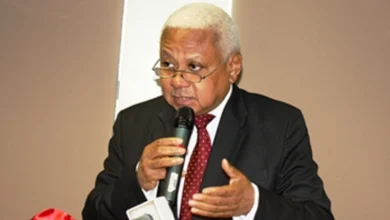OCPD enacts 68 laws to strengthen Tanzania’s legal system

DODOMA: THE Office of the Chief Parliamentary Draftsman (OCPD) has marked major milestones in strengthening Tanzania’s legal framework, with a total of 68 bills passed by Parliament in the past five years, alongside extensive reforms to ensure the country’s laws respond to dynamic social and economic realities.
The achievements were revealed yesterday in Dodoma by the Chief Parliamentary Draftsman, Mr Onorius Njole, during a working session between the Attorney General’s Chambers and editors of media outlets across the country.
Mr Njole said the five-year journey has seen OCPD oversee the amendment of 297 laws, revision of 446 principal legislations, translation of 433 laws into Kiswahili, and the preparation of 5,708 subsidiary legislations.
He noted that these reforms demonstrate the government’s resolve to modernize the legal framework and make it inclusive, accessible, and responsive to development needs.
“This shows the government’s effort to ensure an up-to-date system, where laws are reviewed because of changing environments, emerging needs, or specific policy demands,” said Mr Njole.
He pointed out landmark reforms introduced over the period, including the Arbitration Act, 2020, which replaced one of the country’s oldest pre-independence laws to strengthen alternative dispute resolution.
The Miscellaneous Amendments Act, 2021, introduced Kiswahili as the language of law and court proceedings, while the Data Protection Act, 2022, established safeguards for the use of personal information.
The Universal Health Insurance Act, 2023, expanded access to affordable healthcare through insurance. This was followed by 2024 reforms to election and political party laws, as well as child protection amendments that strengthened safeguards in areas such as employment, testimony, and cybercrime.
In 2025, Parliament enacted the Investment and Special Economic Zones Act, which merged the Tanzania Investment Centre (TIC) and the Export Processing Zones Authority (EPZA) under a single institution for streamlined investment management.
ALSO READ: AG office urges media stick to ethics ahead to the General Elections
“Broadly, these reforms reflect a legal system that is adapting to social and economic changes, shaping the country to better respond to present and future challenges,” he said.
Mr Njole also underscored capacity-building achievements, noting that the number of legislative drafters increased from 18 in 2020 to 43 in 2025.
During the same period, 11 drafters were supported to pursue specialised training in legislative drafting, including master’s programmes.
“We have enhanced government lawyers’ skills through our Legislative Drafting Proficiency Series, a weekly online training that benefits both in-house and external drafters,” he said.
Other milestones include the issuance of drafting guidelines and technical publications, the launch of the Tanzania Legislative Drafting Newsletter, and the preparation of model laws tailored for Local Government Authorities.
The OCPD was established under the Legal Sector Laws (Amendments) Act No. 10 of 2023 to enhance efficiency in law-making processes, including revision, translation, and drafting of subsidiary legislation.
It also provides legal drafting services across all levels of government institutions.
According to Mr Njole, the creation of the OCPD has helped speed up the drafting process while maintaining quality standards, expanding the pool of resources, and ensuring coordinated delivery of legal services across government structures.
Among its core mandates are advising the government on the legislative process, drafting all government bills, overseeing the publication of legal documents in the Government Gazette, drafting and reviewing subsidiary legislation, revising laws, and translating statutes and other legal instruments.
“These reforms and institutional capacity reflect a government determined to keep the legal system not only relevant but also a key enabler of sustainable development,” Mr Njole stressed.





